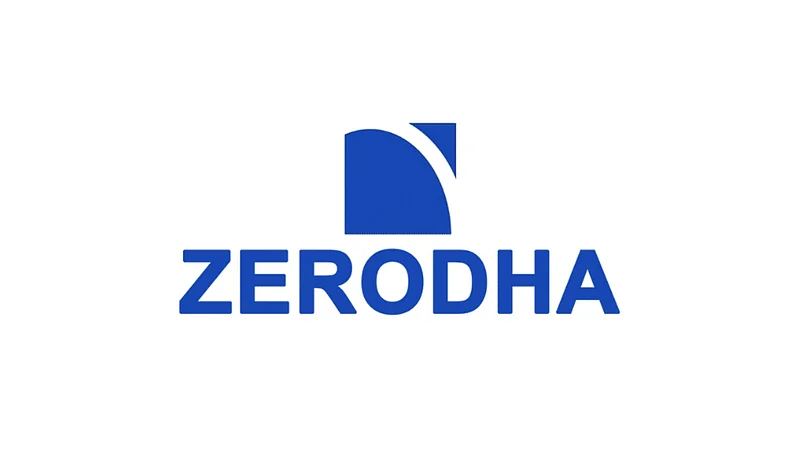Over the past decade, Zerodha has transformed the landscape of retail investing in India. More than just a discount brokerage, it has evolved into a comprehensive financial services ecosystem, integrating technology, education, transparency, and innovation. With millions of active users, it’s not only the largest stockbroker in India but also one of the most trusted names in the industry.
This blog takes a detailed look at the evolution of Zerodha, explores the core components of its growing ecosystem, and provides insights into where it’s headed in the future.
The Origins: Disrupting a Traditional Industry
When Nithin Kamath founded Zerodha in 2010, India’s brokerage space was dominated by traditional firms that charged high commissions and offered complex, outdated platforms. Zerodha introduced a revolutionary pricing model — zero brokerage on equity delivery and a flat ₹20 per trade on intraday and F&O segments.
This unprecedented move attracted a new wave of young, cost-conscious, and tech-savvy traders. Zerodha democratized market participation, breaking down barriers that had long kept retail investors out of the financial markets.
Platform Innovation: Building a Digital-First Ecosystem
Zerodha quickly realized that low costs alone wouldn’t be enough to retain users. What followed was a series of innovations aimed at creating a seamless digital experience:
1. Kite – The Core Trading Engine
Kite is Zerodha’s proprietary trading platform, known for its minimalistic design and powerful features. It offers real-time market data, multiple charting tools, technical indicators, market depth, and simplified order placing — all accessible through mobile and desktop interfaces.
2. Console – The Financial Dashboard
Console serves as the financial back office for Zerodha users. It provides access to tax-ready reports, P&L summaries, contract notes, holdings, trade history, and corporate action alerts — empowering users to make data-driven decisions.
3. Coin – Direct Mutual Fund Investments
Launched as India’s first direct mutual fund platform, Coin enables investors to buy and manage commission-free direct mutual funds. This helps users save on annual commissions, leading to significantly higher returns over time.
4. Sentinel – Market Alerts
Sentinel allows users to set real-time price alerts on stocks, indices, and more — even when the app is closed. This feature is especially useful for active traders who need instant updates based on specific triggers.
5. Streak – Algorithmic Trading Made Simple
Through a partnership, Zerodha introduced Streak, a no-code algorithmic trading platform. Users can build, test, and deploy trading strategies without any programming knowledge — opening doors to systematic trading.
6. Smallcase – Theme-Based Investing
Integrated with Zerodha, Smallcase allows users to invest in curated portfolios of stocks based on market themes, sectors, and investment ideas such as ESG, dividend growth, or value investing.
Empowering Through Education: Varsity and LearnApp
Zerodha’s approach goes beyond providing trading tools. One of its most appreciated initiatives is Varsity, an open-access platform offering in-depth tutorials on trading, investing, risk management, and derivatives. It’s widely regarded as one of the best free financial education platforms in India.
In addition, through partnerships like LearnApp, Zerodha supports interactive learning through video-based courses taught by industry experts and financial influencers.
This strong educational backbone has helped Zerodha cultivate a community of informed investors, encouraging sustainable and long-term market participation.
Rainmatter: Fostering a Fintech Revolution
Zerodha established Rainmatter, a fintech incubator and investment arm that funds startups focused on finance, health, wellness, and investing. It provides capital, mentorship, and infrastructure to early-stage companies aligned with Zerodha’s vision of enabling better financial health for Indians.
Startups like Smallcase, Ditto Insurance, and Wint Wealth are examples of Rainmatter-funded ventures that now form integral parts of the extended Zerodha ecosystem.
This collaborative model allows Zerodha to expand beyond broking and build a future-ready fintech stack serving diverse needs across investing, insurance, credit, and wellness.
User-Centric Approach: Transparency and Trust
Zerodha has always focused on doing what’s best for the customer — even if it meant slower growth in the short term. Some notable aspects of this philosophy include:
No Hidden Charges: All costs are clearly explained on the platform.
No Pushing of Risky Products: Unlike many brokers, Zerodha does not aggressively promote leveraged or derivative products to new users.
No Call-Driven Sales Tactics: The company avoids using high-pressure call centers to sell services or features.
Founder-Led Transparency: Nithin Kamath often shares business metrics, challenges, and ideas publicly, setting a rare example of openness in the industry.
Challenges and Competition: Navigating a Crowded Market
As India’s fintech boom continues, Zerodha faces stiff competition from platforms like Groww, Upstox, Angel One, and traditional banks digitizing their services. These competitors often invest heavily in user acquisition, celebrity marketing, and gamification.
However, Zerodha’s refusal to chase growth at the cost of user experience has helped it build long-term trust. It continues to focus on:
Deep product integration
Low technical downtime
Ethical business practices
Superior customer support
Its frugal, bootstrapped model also gives it more control over direction and operations compared to VC-funded competitors.
The Road Ahead: What’s Next for Zerodha?
Looking to the future, Zerodha is expected to evolve into a full-scale wealth management platform that may encompass:
1. Global Investment Access
Plans may include allowing users to invest in US or other global equities via integration or partnerships.
2. Retirement Planning Tools
Personalized retirement calculators, SIP-based retirement funds, and tax-optimized planning tools could become key additions.
3. ESG and Ethical Investing
With increasing demand for socially responsible investing, Zerodha might introduce ESG-focused products through Coin or Smallcase.
4. AI & ML Integration
AI-driven insights, predictive analytics for traders, robo-advisory tools, and intelligent portfolio analysis are likely to be future enhancements.
5. Insurance and Credit
Deeper integrations with health insurance, life insurance, and credit products through Rainmatter-backed startups like Ditto.
Conclusion: Zerodha — More Than a Broker
Zerodha’s journey from a small startup to India’s largest stockbroker is one of purpose-driven innovation. It has redefined what a financial platform can be — not just a place to trade, but a system designed to educate, empower, and enable better financial decisions.
Its focus on low-cost investing, user education, ecosystem partnerships, and ethical conduct has made it a model for fintechs not only in India but globally. As more Indians enter the world of investing, Zerodha is poised to play a pivotal role in shaping how they build wealth, learn about money, and secure their financial futures.







